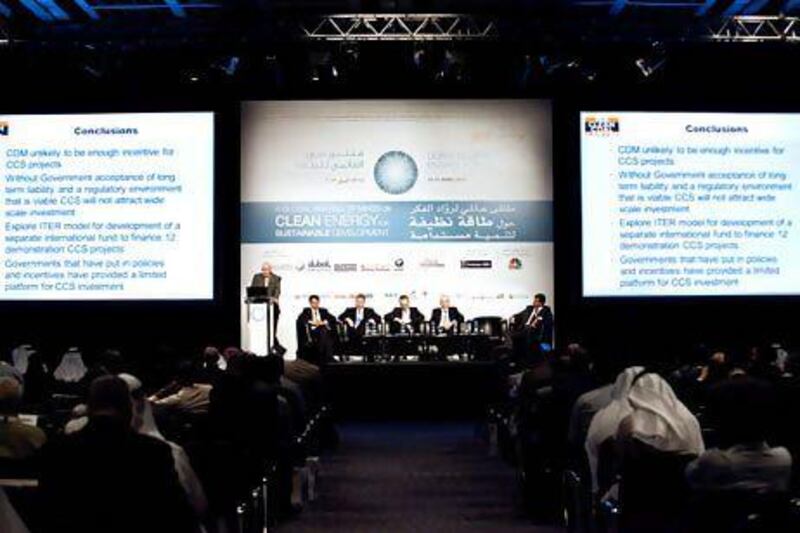Dubai's hopes of launching an environmentally friendly coal power plant is "a really good opportunity" but faces tall hurdles, said a specialist in the field.
For at least four years Dubai Electricity and Water Authority (Dewa) has studied plans to build a massive coal-burning power plant whose emissions would be pumped under the ground, providing the emirate as much as 3 gigawatts of energy without polluting the air.
"The key part is where is the coal going to come from and what is going to be the cost of the infrastructure," said John Kessels, a senior adviser to the International Energy Agency Clean Coal Centre in the United Kingdom.
"With coal it's not so difficult to know where to build a power station, the tricky part is the carbon capture and what the cost would be."
Importing vast amounts of coal might seem to defy logic in the Arabian Gulf, but it has the advantage of being cheap and plentiful. Shale technology being used to unlock oil and gas from hard-to-reach deposits might also help to recover some of the 83 per cent of coal resources not mineable today in countries with vast potential such as India, South Africa, Indonesia and Brazil, Mr Kessels said.
Dubai hopes to use a technology to transfer coal to gas before it is burnt, a technique used in only a handful of plants. The carbon emissions would then be captured and pumped underground. Dewa began working in 2011 with McKinsey and other consultants on the project.
A smaller-scale plant is slated for construction in Ras Al Khaimah, where the utility companies Utico and Shanghai Electric signed an agreement last year to build a Dh1.5 billion (US$408.4 million) 270-megawatt coal-burning power plant that would capture 1.1 million tonnes of carbon a year.
Instead of being pumped underground, a practice that has raised concerns among residents in other countries where similar projects have been planned, the carbon would be captured with chemicals and algae that would then be used to manufacture biofuel.
Excess carbon would be sold on the market as soon as 2015, when developers hope to bring the plant online. Countries embarking on carbon capture projects need to establish legal foundations to attract large-scale investment, said Mr Kessels.
"You need the government acceptance of liability and a regulatory environment that's accepting of CCS (carbon capture and storage) to attract wide-scale investment," he said at the Dubai Global Energy Forum. "At the moment CCS is not attracting wide-scale investment."
More than 3,000 carbon capture projects are needed worldwide by 2050 to hold off the worst effects of climate change, according to the International Energy Agency.
Progress on carbon capture projects in Europe, one of the few places in the world that supports CCS with a price for emissions, is expected to slow after the European Commission yesterday voted down a measure to boost carbon prices, which have fallen.
The price of carbon could drop to below €1 a tonne, far below the €50 to €70 that many industry executives say is necessary to incentivise development, and "liquidity will dry up", said Kash Burchett, an energy analyst at IHS.
"Member states are now far more likely to rely upon individual carbon pricing mechanisms and subsidies for clean energy," said Mr Burchett.
"Europe will likely meet its emissions targets mainly as the recession is denting economic activity while efficiency measures reduce energy consumption."
In the absence of investment, clean coal technology may require the kind of incubation that nuclear fusion has had, said Mr Kessels.
The governments of the EU, India, Russia, China, South Korea, Japan and the United States have jointly invested in a research centre in France where scientists are building an experimental reactor.
But even that "has yet to be developed", admitted Mr Kessels.





